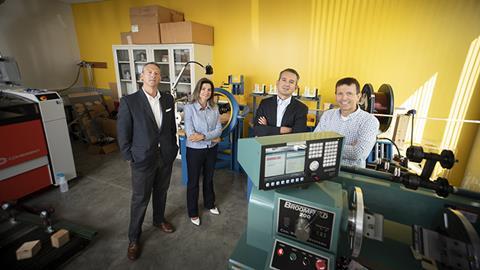Engineers at Purdue University, in collaboration with the Indiana Department of Transportation (INDOT), are making strides toward enabling electric vehicles (EVs) to charge wirelessly while driving on highways.

The project involves the construction of a quarter-mile test bed on U.S. Highway 231/U.S. Highway 52 in West Lafayette, Indiana, where a patent-pending system designed by Purdue engineers will be tested.
The system aims to provide power to a variety of electric vehicles, including heavy-duty trucks, as they travel at highway speeds. The initial phase of the project involves testing the system’s efficacy in charging a heavy-duty electric truck provided by Cummins Inc. The ultimate goal is to electrify sections of Indiana interstates within the next four to five years.
While similar initiatives exist in other states and countries, the challenge of implementing wireless charging for highways, particularly for heavy-duty trucks, presents unique hurdles. High-speed travel on highways necessitates charging at higher power levels, which requires innovative solutions.
The wireless charging system designed by Purdue researchers accommodates these higher power needs while also supporting the charging requirements of other vehicle classes. By focusing on heavy-duty trucks, which contribute significantly to greenhouse gas emissions in the transportation sector, the project aims to maximize the environmental and economic benefits of EV adoption.
The technology functions similarly to wireless charging pads used for smartphones, utilising magnetic fields to transmit power from transmitter coils embedded in the pavement to receiver coils attached to the underside of vehicles. Unlike previous designs, Purdue’s system is capable of delivering power at higher levels and is compatible with both concrete and asphalt pavements.
Testing has involved mechanical assessments of pavement durability and electromagnetic performance evaluations of the charging system. The research has garnered attention from various media outlets and has the potential to shape the future of EV charging infrastructure on highways.


















